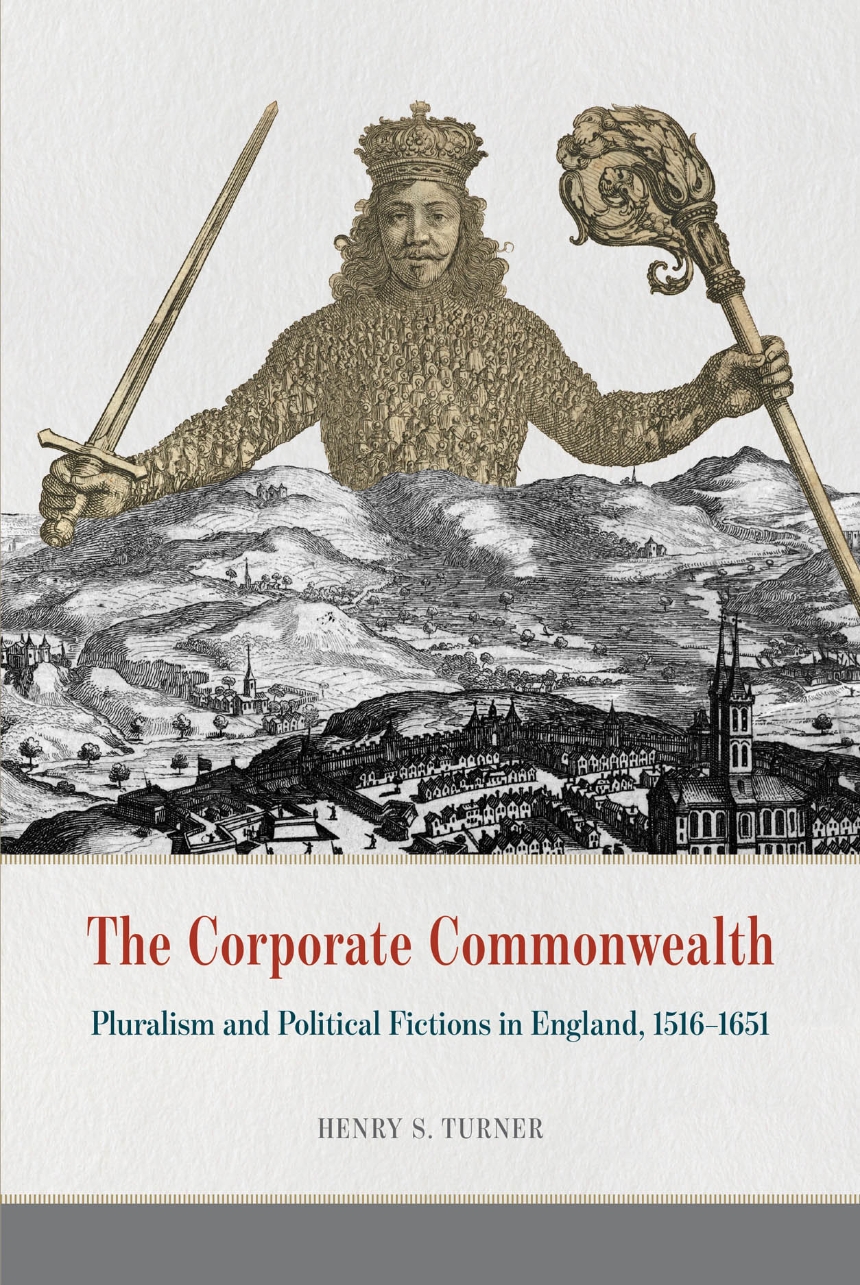The Corporate Commonwealth
Pluralism and Political Fictions in England, 1516-1651
The Corporate Commonwealth
Pluralism and Political Fictions in England, 1516-1651
Henry S. Turner uses the resources of economic and political history, literary analysis, and political philosophy to demonstrate how a number of English institutions with corporate associations—including universities, guilds, towns and cities, and religious groups—were gradually narrowed to the commercial, for-profit corporation we know today, and how the joint-stock corporation, in turn, became both a template for the modern state and a political force that the state could no longer contain. Through innovative readings of works by Thomas More, William Shakespeare, Francis Bacon, and Thomas Hobbes, among others, Turner tracks the corporation from the courts to the stage, from commonwealth to colony, and from the object of utopian fiction to the subject of tragic violence. A provocative look at the corporation’s peculiar character as both an institution and a person, The Corporate Commonwealth uses the past to suggest ways in which today’s corporations might be refashioned into a source of progressive and collective public action.
344 pages | 8 halftones | 6 x 9 | © 2016
History: British and Irish History
Law and Legal Studies: Law and Society
Literature and Literary Criticism: British and Irish Literature
Philosophy: Philosophy of Society
Political Science: Political and Social Theory
Reviews
Table of Contents
Preface
Acknowledgments
1 Corporation as Common Constitution
What Is a Corporation?
Persona Ficta
Pluralism, Corporations, and the State
Toward a Compositional Ontology of Corporations
2 The Political Economy of Sir Thomas Smith
A New Philosophy of Value
The Society of Commonwealth
The Law of Commonwealth
3 Richard Hooker’s Corporate Christians
Discipline as Constitution: Calvin in Geneva
The Nature of the Ecclesiastical Polity
The Corporate Personality of the Society Supernatural
The King’s Two Publics
From the Laws to Leviathan: Temporalities of the Corporation
4 The Principal Navigations, Voyages, Traffiques, and Discoveries of the English Corporation
“Fine, Try Out, Alter, Change, Reduce, Turn and Transmute”: Smith’s Society of the New Art
Planting the Commonwealth: Smith’s Ulster Project
“To Buy, Sel, Truck, Change and Permute al”: Hakluyt’s Corporate Imaginary
In a Joint and Corporate Voice
Translating Value
Free Liberty, Power, and Authority; or . . .
5 Dekker and Company
The Companies and Their Art
Sharing the Company
Dekker’s Corporate Theater: The Shoemaker’s Holiday
The Character of the Corporate Person
6 Shakespeare’s Thing of Nothing
Shares, Parts, and Personation: Hamlet
Incorporate in Rome: Titus Andronicus and Julius Caesar
The Plague of Company in the Body o’th’ Weal: Timon of Athens and Coriolanus
7 Francis Bacon’s Political Ecology
Collecting the Notion
Common Forms: Axioms and Words
Incorporate Form and Corporate Spirit
The Politics of Nature
The State of Nature: New Atlantis
8 Leviathan, Incorporated
“Aristotelity”
Persons Natural, Artificial, and Fictional
Persons Mechanical, Theatrical, and Real
Coda Universitas, 1216–2016
Notes
Bibliography
Index
Awards
SEL Studies in English Literature 1500-1900 & Rice University: Elizabeth Dietz Memorial Award
Won
